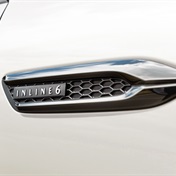
Cape Town - Les McMaster, chairman of the Motor Industry Workshop Association (MIWA), says the current economic climate has put pay to many a consumer’s dream of driving a new car off the showroom floor and forcing them instead to look at a “previously-loved” set of wheels.
He said: “Buying a pre-owned car isn’t as big a gamble, as it was years ago. Modern cars are built to last far longer than 10 years with regular maintenance so the used car market is a good option for consumers reeling from interest rate hikes and a depreciating Rand.”
Statistics from vehicle specialists, WesBank, supports a used-car shopping trend; WesBank says "it receives 2.3 used vehicle finance applications for every new vehicle finance application" and adds that 1.5 used vehicles are financed for every new vehicle.
'Interest rates to increase'
Year-to-date, total industry new vehicle sales are down 9.8%, passenger car sales through dealers a massive 22.8% and light commercial vehicle sales 9.2%.
McMaster said: “Interest rates are set to increase again in the next few months, which will impact directly on consumers with linked interest rate loans. Car shoppers, whether buying new or used, must allow for enough leeway in their budgets to comfortably absorb any increases in monthly repayments, as well as fuel, insurance and maintenance costs.”
He adds that marketing strategies to entice buyers to new vehicles through various incentives and bells and whistles, can only go so far. Ultimately, affordability will influence a buying decision.
“There may be a shift to the used car market at the moment but outright affordability over the long term should remain the single largest consideration for anyone thinking of buying a car.”
The Up Side: list by WesBank and Miwa
New car - pros and cons
• You’ll get a comprehensive warranty.
• No previous wear, mechanical damage or body damage.
• You can add on whatever extra features and options you want.
Cons
• Purchase price is higher.
• Depreciates the minute you drive it off the showroom floor.
• Insurance, taxes and registration fees are higher.
Used cars: pros and cons
• Purchase price is lower.
• If you buy privately, the price could be even lower.
• Used cars continue to depreciate, but cars typically depreciate the most during the first three years.
Cons
• Financing may carry a higher interest rate.
• There may be a limited or no warranty, even from a dealer.
• You can’t order the car with the features and options you want.
• May have higher maintenance costs.
What if you can't afford your car repayments?
Consumers who find themselves with increased expenses and no additional income, have the option to:
• Make a short-term arrangement with the bank. This could either involve skipping or delaying a payment, which can then be repaid over a two or three month period. However, this will negatively affect your credit record.
• Trade in the car for one that is more affordable. This is the most effective way to remain mobile while affording the instalments. This option will have no impact on the your credit record.
• Enter debt review, if expenses far outweigh income. This should be a last resort, as a debt review is a long-term remedy for which the pros and cons need to be thoroughly researched.
McMaster said: "A good middle ground between a new and used car is a ‘certified pre-owned’ car. These have been checked over by the dealer and come with a warranty."
Consumers whose income has been negatively affected, have the following options:
• Contact the bank to make a repayment arrangement, if the loss of income is only temporary.
• Make use of insurance products such as retrenchment and disability cover for financial assistance. These products are available at the time of purchase and can be used at any time during the finance contract
• Sell the vehicle, if the loss of income is likely to be a long-term situation. This eliminates the risk of having an unaffordable vehicle or being required to cancel insurance. This option avoids incurring a bad credit record.
• Return the vehicle to the bank, in the event that it cannot be sold privately. The bank will sell the vehicle through an auction, although the process may not completely settle the debt on a loan if the vehicle’s value is lower than the outstanding debt amount.




 Publications
Publications
 Partners
Partners















